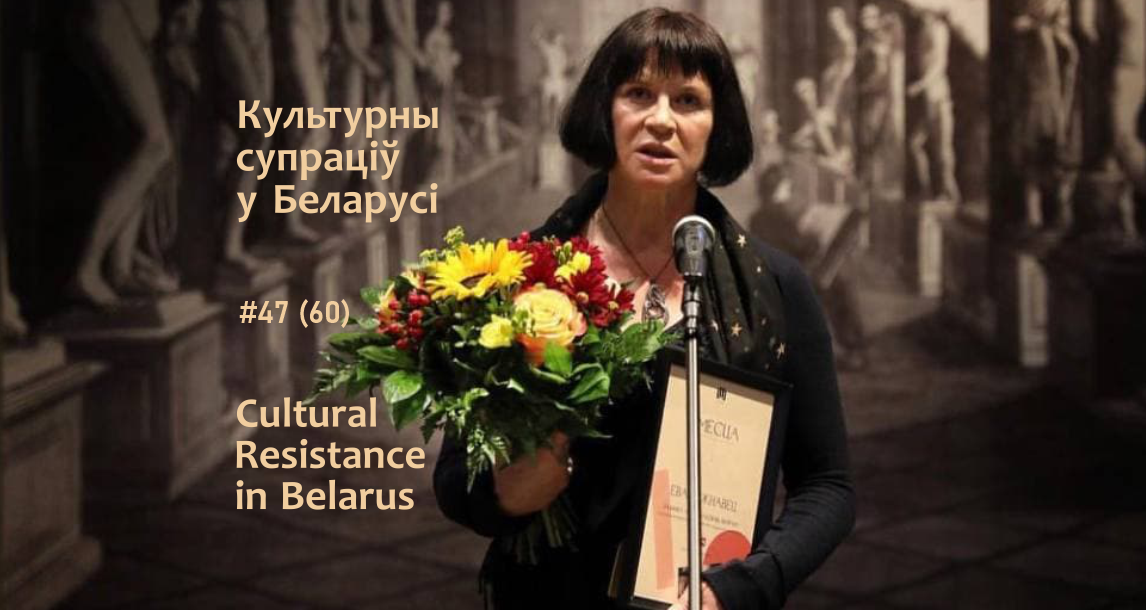
Download the pdf-version of issue 60 of Cultural Resistance Monitoring
Persecution, Convictions, Censorship, Cultural Policy

Uładzimir Bułaŭski, a well-known activist and organizer of cultural events in Viciebsk, was detained on November 26, he is now kept in the pre-trial detention center.
Alaksiej Minaŭ, a political prisoner, writer and teacher of the Belarusian language and literature, was sentenced to 3 years in an open air prison on charges of “organizing and preparing actions that grossly violate public order, or active participation in them”.
Ivan Dabruk, Alaksandr Jendžejeŭski and Nasta Suchanosik, actors of the Hrodna Regional Puppet Theater, were asked to write applications for dismissal. This is not the first politics-related dismissal from the theater.

The Cil play of the Yakub Kolas National Academic Drama Theatre was banned in Viciebsk immediately after the premiere on November 21. The play by Ryhor Horyn based on the novel by Charles De Coster Till Ulenspiegel tells the story of a brave and resourceful leader of the Geuzen, who fought against tyranny. According to media reports, officials did not like the performance and were especially annoyed by the use of red ribbons and shouts from the stage Long live Flanders! The show was attended by the top officials of the Viciebsk region, as well as representatives of the Ministry of Culture: Minister Anatol Markievič and Iryna Dryha, head of the main department of state special cultural events and professional arts.
It also became known about the dismissal of Alaksandr Starych, the head of the theater, and at least three actors — Anžeła Barkoŭskaja, Julija Krašeŭskaja and Arciom Hierlak.
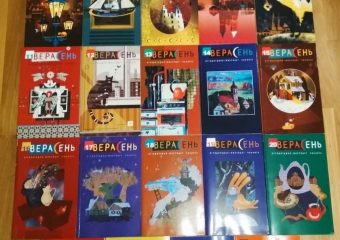
The literary magazine Vierasień won’t be published anymore because the officials canceled the registration of its founder — The Francišak Skaryna Belarusian Language Society.
The Supreme Court will not appeal the verdict against Mikoła Papiek, a poet and a political prisoner under the “karahod” case. He was informed about it in writing at his place of residence: “there are no grounds for protesting” the letter says.
After a search, Natalla Pietuchova, a Minsk tour guide, was arrested for 15 days for “refusing to open the door to KGB officers” and “physically preventing them from entering her apartment with her body”.

The Investigative Committee of the Republic of Belarus accuses Viačasłaŭ Sikora, an actor from Mahiloŭ, of “inciting hostility”. He left Belarus and was put on the international wanted list.
The Ščorsy and Chraptovičy Foundation, which was involved in the revival of the Chraptovičy Palace and Park Complex in Ščorsy, was liquidated.
Valery Mazynski, a well-known theater director, Honored Art Worker of Belarus, founder of the Free Stage Theater and a teacher, was deprived of his pension for special services to the Republic of Belarus. The reasons for this decision have not been revealed, but Mazynski is known to have publicly criticized the current authorities for their cultural policy.
Life of the Imprisoned People

Ihar Bancer, a musician and political prisoner, was released from a punitive confinement after 20 days he was detained there. Later it became known that the court refused to transfer Ihar to the penal colony of a stricter regime. On November 25, it became known that Ihar was sent to a 10-day punitive confinement again, this time for recording a video for Mediazone about the conditions at the open air prison where the musician is serving his sentence.
Viasna Human Rights Center calls to send poems to Uładzimir Łabkovič, a political prisoner and human rights activist.
The family of Alaksandr Vasilevič, a political prisoner, co-founder of online media, owner of Vondel / Hepta agency and Ў Gallery, author of Dad and the Penguin fairy-tales, who recently received the Francišak Aliachnovič Award, have not received any letters from him for several weeks.

Andrej Alaksandraŭ, a political prisoner, poet, journalist and media manager who recently received the Francišak Aliachnovič Award, sent a list of his favorite authors and works. Sviatłana Aleksijevič, a famous writer, and Uładzimir Mackievič, a political prisoner, philosopher and writer, are among them.
Alaksandr Bahdanaŭ (Papa Bo), a politically imprisoned DJ and art manager who has been in jail since September for “group actions that grossly violate public order”, sent his top 10 Belarusian tracks in a letter from behind bars. Among the performers — Shuma, Pietla Pristrastija band, Siarhiej Pukst and others.
Dissent and Cultural Activism
As part of the week of immersion in Belarusian culture, a series of master classes for teenagers with prominent cultural figures have been run online by musicians Rusia and Lavon Volski, actor Dźmitry Tumas, as well as Mikałaj Chalezin, art director of the Belarusian Free Theater, Anna Złatkoŭskaja, writer and journalist, and Hanna Komar — a poet and member of PEN Belarus.
A book trailer for Andrej Fiedarenka‘s book The Metro Token, a shortlist for the 2021 Jerzy Giedroyc Literary Award, has been released.
The 2021 Jerzy Giedroyc Literary Award for the best original book written in Belarusian in the genres of fiction and documentary prose and published in 2020 was awarded on November 26.
- The first place “for the creation of an original artistic chronotope and the transfer of the aura of Belarusianness against the background of the global world and universal values” was given to Jeva Viežnaviec’s book Pa što idzieš, voŭča? (Bel. for Where are you going, wolf?).
- Tania Skarynkina won the second place “for mastering a new format of domestic non-fiction, where the creation of a polyphonic world of the Belarusian province is combined with the immediacy of the author’s expression” with her Rajcentr (District Center).
- Third place went to Kalinoŭski and the political birth of Belarus by Siarhiej Abłamiejka “for an inspired and compelling story about the political birth of Belarus and the Belarusian nation.”
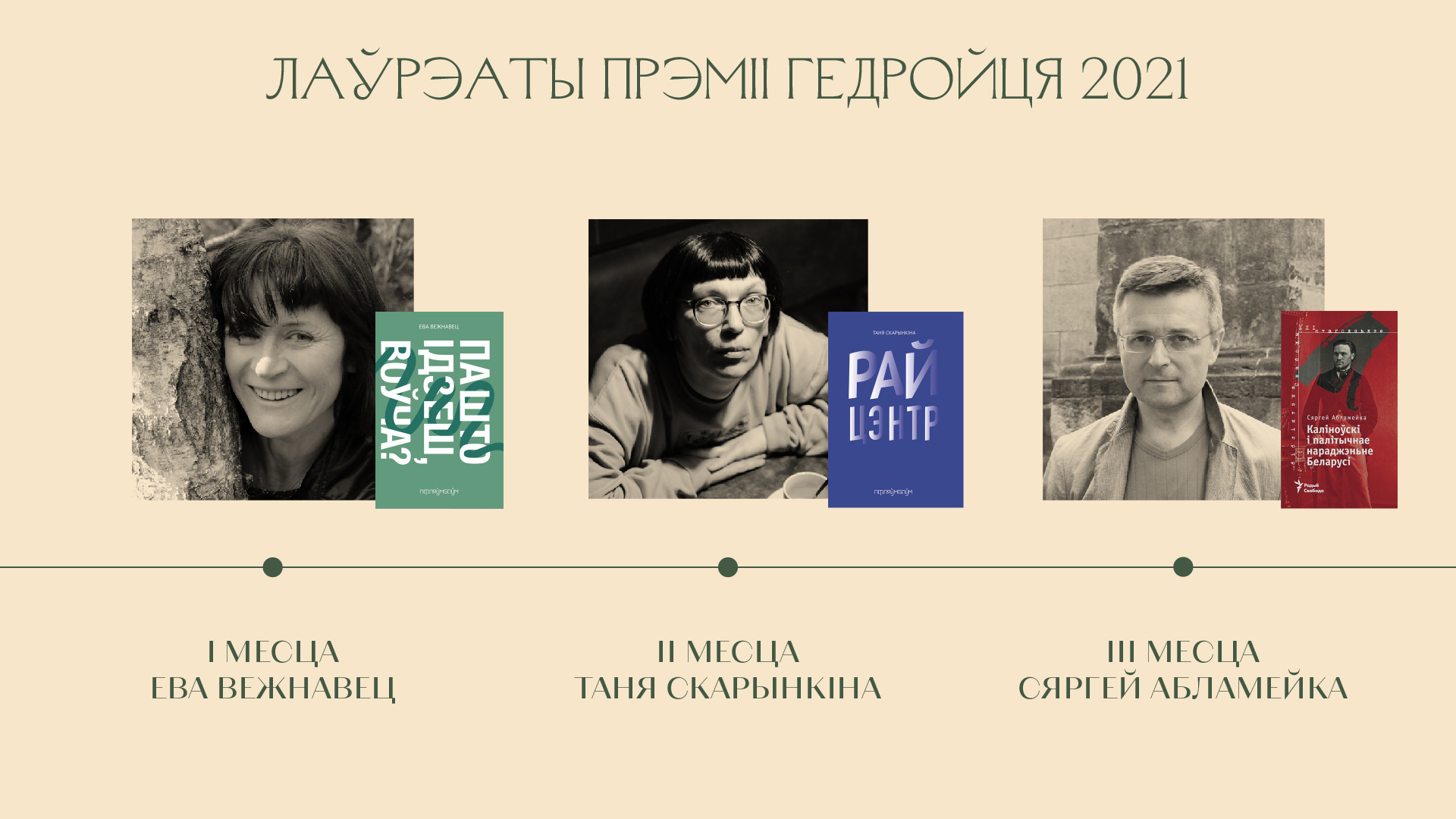
Siarhiej Cichanoŭski, an activist and a political prisoner, wrote the song This Way behind bars. A music video was made for it, Kosmas musician sang it, and the Volny Chor took part in the recording.
The Mr. Landsbergis film by a Belarusian Siarhiej Łaźnica won the main award of the International Documentary Film Festival in Amsterdam (IDFA). The film, composed of live interviews and chronicles, tells about the collapse of the USSR and the role of Vytautas Landsbergis, the leader of the movement for the restoration of Lithuania’s independence, in this process.
The WITHOUT A NAME (:B:N:) band released the song MAJAKI.
The Triennial of Conceptual Art Concept by the Belarusian Union of Artists has opened at the Palace of Arts. 200 authors and about 450 works take part in the exposition.
Voices of Belarusian Culture
Nasta Mankievič, a tour guide, told about her detention experience,
“There was bleach [pouring bleach in cell to torture the detained], we were taken outside without any warm clothes, we had searches at day and night, and the feeding window [commonly the only source of fresh air in the cell] got closed for a long time. But, thank God, at least they didn’t beat me.”

Eugene Kuchmeina (.K), a musician from Hrodna, speaks about his impressions of the events of the last two years,
“It has been an exceptional year. At first it seemed that changes would begin right then. After that, it seemed that no, nothing would happen. Like a seesaw.
I worked with various musicians who came to me to work in the studio, and fear and paranoia reigned among all of them. But this bad situation is better than if nothing had happened at all. If nothing had happened and everything was as usual, this life would resemble death. The fact that people are leaving should not be seen as a defeat and the end of everything. New things appear in culture during times like that.”
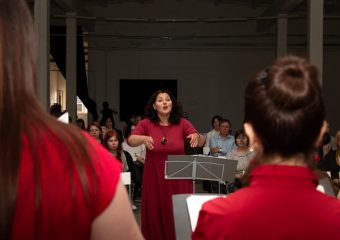
Halina Kazimiroŭskaja, a choral conductor who had to flee Belarus, said in an interview,
“I understand that me stopping being a musician means they won, they broke me down!
People of culture in Belarus are used to receiving no help from the state. We were happy if it merely was not in our way. We are an autonomous nation that has learned to find ways out, to seek support from other parties, to organize projects and enable creative ties.”
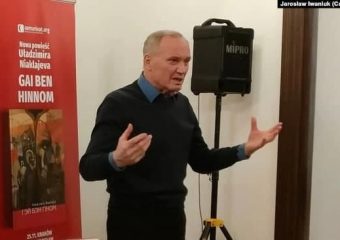
Uładzimir Niaklajeŭ, a Belarusian writer and poet and a member of PEN Belarus, spoke about his new novel Hej Ben Hinom,
“The novel is relevant, because what seemed to remain in history forever has returned. Today’s generation of Belarusians repeats the fate of the Stalinist generation. Years of repressions, the victims of which were the best sons and daughters of Belarus. Including the national genius Janka Kupała, whose life and death lie in the plot of the novel. Many people asked me what the title of the book means. It is translated as the “Fiery Gehenna”. Or simply hell, in which (in the eternal fear of being arrested, to go to prison, camp, or end up in Kurapaty) the characters of the novel lived their lives. And in which thousands of Belarusians suddenly found themselves today…”

Andrej Alaksandraŭ, a poet, political prisoner, journalist and media manager, reacted to the news that he had received the Francišak Aliachnovič Award,
“We come from a nation of many great poets, so this recognition is a sincere surprise to me. It is said that poetry does not require readers, but I am delighted that my thoughts and words turned out to be in demand and, I hope, they helped someone to survive this autumn at least. I absolutely agree with you: everything will be fine! We keep on writing.”
International Solidarity
The Polish media dwutygodnik.com published a longread about the Belarusian music scene:
“The emancipation of voices is a sign of the times. In Belarusian and Russian, the word “hałasavać” coming from the word “voice” also means participation in elections. People literally got their stolen votes [and voices] back, freed themselves from enslaved silence and demanded the truth.”
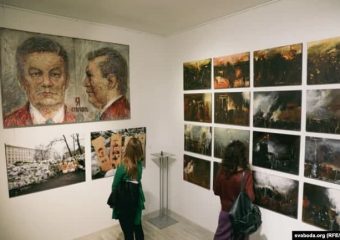
A Belarusian Maidan exhibition of Ukrainian artists about the events of the Ukrainian Maidan and protests in Belarus has opened in Kyiv.
A Roots exhibition by photographer Natalla Doraš for Belarusians in Warsaw who miss home has opened at the Warsaw Center for Belarusian Solidarity. The pictures were taken during 2010–2020 in the vicinity of Hrodna.
Marharyta Laŭčuk, an opera singer, gave a concert of solidarity with the families of Belarusian political prisoners at the Central City Hall of Paris. Andrej Vajtovič‘s film Together was also shown during the event.
Political Prisoners’ Birthdays
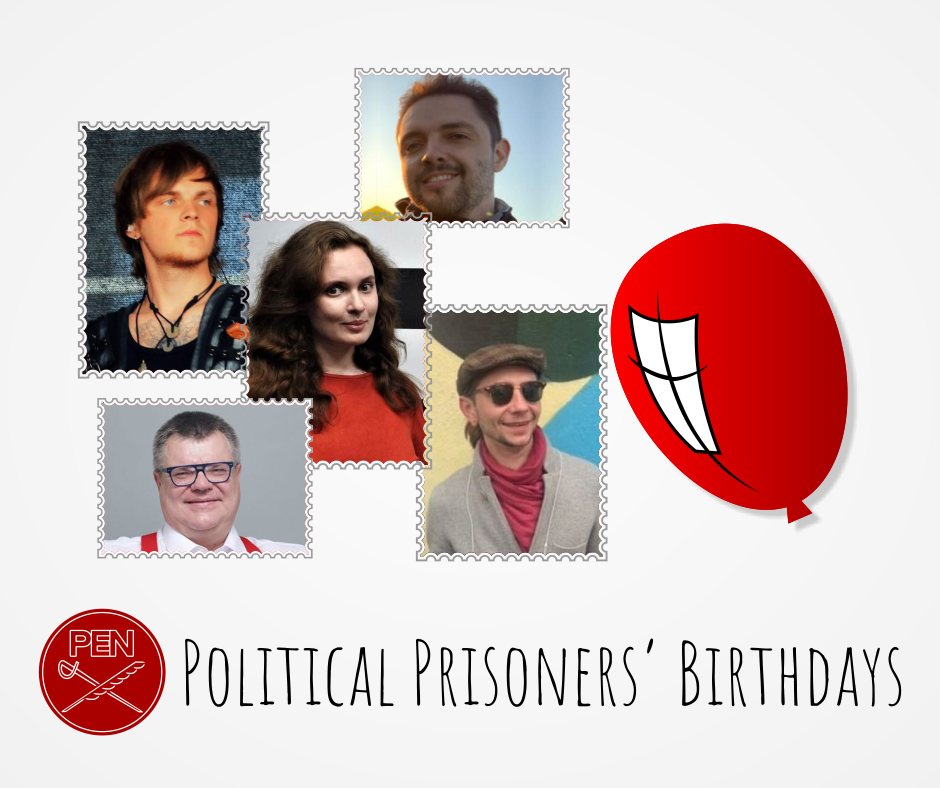
For November 28, 887 persons have been recognized as political prisoners in Belarus, and the number has been increasing steadily.
PEN Belarus, as an association of writers, is particularly concerned about the fate of cultural workers who have been unjustly imprisoned.
In November, 5 political prisoners somehow involved in the process of cultural development of our country, will celebrate their birthdays behind bars. They are:
Anton Šnip, musician (November 1); Kaciaryna Andrejeva, journalist, writer (November 2); Viktar Babaryka, patron of arts (November 9); Ihar Jarmołaŭ, dancer (November 15) and Maksim Kruk, scene designer (November 16).
Letters and postcards (in Belarusian or Russian) can be sent to the following address:
Anton Šnip (Антон Шніп) and Maksim Kruk (Максім Крук): СІЗА-1. 220030, г. Мінск, вул. Валадарскага, 2;
Kaciaryna Andrejeva (Кацярына Андрэева): ПК №4. 246035, г. Гомель, вул. Антошкіна, 3;
Viktar Babaryka (Віктар Бабарыка): ПК №1. 211440, г. Наваполацк, вул. Тэхнічная, 8;
Ihar Jarmołaŭ (Ігар Ярмолаў): ПК №17. 213004, г. Шклоў, вул. 1-я Заводская, 8.
